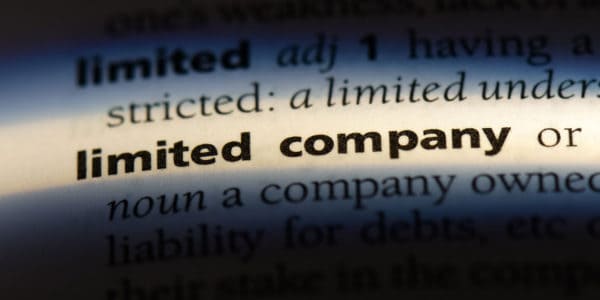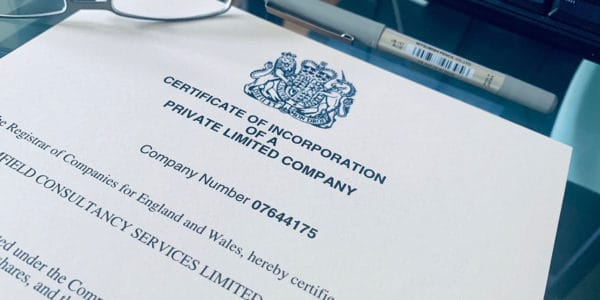The UK has worked hard to make starting your own company easy, and this includes incorporating your business as a limited company. Below, we provide a list of 5 things you’ll need before you begin the process.
Key takeaways
- To register a limited company in the UK, you need a unique company name, a registered office address, a service address for directors and shareholders, at least one director, and at least one member (shareholder).
- Both the registered office address of the company and service address of directors are made publicly accessible. To protect personal privacy, businesses can use Quality Company Formations’ Registered Office and Service Address Services.
- Beyond the 5 key requirements, companies must also select a company structure, a Standard Industrial Classification (SIC) code, and maintain a People with Significant Control (PSC) register.
What do I need to form a limited company?
1. A company name
One of the most exciting aspects of company formation is choosing a company name. Here are the rules when it comes to naming your company:
- Choose a unique company name. It can’t be the same name as an existing registered company, and it must not be deemed too similar either. To determine if the name you’d like to use is available or taken, use our company name search tool.
- Do not use offensive or sensitive words. You’re not allowed to suggest any connection to the government or any public authority, nor can you use any words otherwise protected, unless you have express permission from the relevant authority.
- Limit it to 200 characters and end it with either “limited” or its abbreviation “LTD”.
For further guidance, refer to the official guidance on company name rules and requirements, which includes the full list of restricted ‘sensitive’ words and expressions.
2. Registered office address
Your company’s registered office address is its official address. Every registered company in the UK must have one.
This is the address governing bodies use to send official company correspondence, and where legal documents will be deemed to have been ‘served’ if delivered to. This will also be the address where you store your statutory company registers for inspection unless you nominate a SAIL address. There are several rules regarding the type of address you can use as a registered office:
- It must be in the jurisdiction in which you incorporate your company (England and Wales, Scotland, or Northern Ireland). Whilst you are free to change your registered office at any point after incorporation, you cannot change its jurisdiction
- It must be a physical address, so cannot use a PO Box number or DX number
It’s important to note that your company’s registered office address will be made publicly available on the central register of companies. Therefore, it is not ideal to use your residential home address.
To protect your personal address from being available publicly, Quality Company Formations offers a handy Registered Office Address Service. For just £39 +VAT per year, you can register your office from our prestigious Covent Garden location. We will scan and email your incoming government mail to you the same day we receive it, so you never miss an important document.
3. Service address
All company directors, secretaries, subscribers, People with Significant Control (PSC), and LLP members need to provide a service address when incorporating a company. The service address is the official correspondence address that government bodies such as HMRC and Companies House use to contact these people regarding their role in the company.
The following rules apply to a service address:
- It can be anywhere in the UK or overseas
- It must be a physical address, so you cannot use a PO Box number or DX number
- Your service address can be the same as your registered office address
- You are only allowed to use one service address at a time, but you can change your service address at any time
Just like your registered office address, the service address will be displayed on the public register.
Again, for those who wish to protect their personal address from being publicly available, Quality Company Formations offers a Director’s Service Address. For just £26 +VAT per year, you can have your service address mail sent to our Covent Garden address, and we will scan and email this to you the same day we receive it.
4. At least one director
To form a limited company, you will need to appoint at least one natural (human) company director. It is their responsibility to make decisions on behalf of the company and oversee day-to-day operations. Almost anyone is allowed to be a company director, the only restrictions being:
- You cannot be under the age of 16
- You cannot be an undischarged bankrupt
- You cannot be a disqualified director whose term of disqualification isn’t yet expired
- You cannot be the auditor of the company
Directors aren’t fixed appointments. New ones can be appointed and old ones can be removed as necessary after incorporation.
5. At least one member
Members are the people who own a company, and you will need at least one member to register your company.
The vast majority of companies are private companies limited by shares, whose purpose is to make a profit and distribute it to the owners, otherwise known as ‘shareholders’.
Where the company is to be limited by guarantee, the members are known as ‘guarantors’, as they agree to ‘guarantee’ a certain amount of money to pay into the company if it ever experiences financial difficulty.
- Should I open a business bank account for my company?
- When should I convert from sole trader to limited company?
- Why use a company formation agent to set up a company?
Can a director and shareholder be the same person?
The director and shareholder can be the same person, so if you are forming a company on your own, you can name yourself in both positions.
Other company incorporation requirements
The five items mentioned above are the things you need to get the company formation process started. There are other matters to consider when incorporating a company, but these are supplied to you by your company formation agent as part of the online registration service.
Standard Industrial Classification (SIC) code
A SIC code identifies the business activities your company will undertake and is used for information purposes by a number of third parties including the Office for National Statistics and banks. Your company needs to submit at least one of these codes on incorporation, up to a maximum of four. Quality Company Formations supply a SIC code finder during the registration process, making it easy for you to choose your SIC code or codes.
Memorandum and articles of association
These two documents make up the foundation of your company’s constitution.
The memorandum is a declaration by the company’s first shareholder or shareholders agreeing to form a company. The articles of association outline the basic rules and governance of the company (such as how decisions are to be made and what powers are granted to the directors). The memorandum is automatically generated by Companies House when the company is formed.
Under the Companies Act 2006, companies can use the ‘Model Articles’, which are a basic set of articles that can be used if you do not have or wish to create your own.
After incorporation, the memorandum becomes a historical document and can never be changed, but your articles can be amended with the agreement of the shareholders.
Company type
A company limited by shares is the most common type in the UK and the go-to choice for most businesses. However, when you reach the incorporation stage, you may find it appropriate to form a different type of company structure.
Examples of other types include limited by guarantee (often used by non-profit organisations), limited liability partnership (LLP), and public limited company (PLC). You cannot change a company type following incorporation.
People with Significant Control (PSC) Register
Almost all companies registered in the UK are required to record all People with Significant Control on incorporation. Thereafter, these details must be entered and kept up to date in the PSC register, which records every individual and relevant corporate entity that has control over the company.
Choose company formation
Company formation is the process of registering a business as a limited company. By forming (or ‘incorporating’) a limited company, you will be turning your new business into an independent entity in the eyes of the law.
This means there is a separation between your finances, assets, and contracts and those of the business. As the owner of your new limited company, you can only be held financially liable for the amount up to the nominal value of the shares you own of that company. This is called ‘limited liability’.
Quality Company Formations is here to make the process of forming a company as simple and efficient as possible. Our range of affordable company formation packages helps you pick the services tailored to your needs. We do detailed checks to ensure your company is built with compliant foundations, and by choosing us, you can start trading with your official company name in as little as 24 hours.
Thank you for reading. Leave a comment below or get in touch to ask any questions before you start forming your UK limited company.
Please note that the information provided in this article is for general informational purposes only and does not constitute legal, tax, or professional advice. While our aim is that the content is accurate and up to date, it should not be relied upon as a substitute for tailored advice from qualified professionals. We strongly recommend that you seek independent legal and tax advice specific to your circumstances before acting on any information contained in this article. We accept no responsibility or liability for any loss or damage that may result from your reliance on the information provided in this article. Use of the information contained in this article is entirely at your own risk.














Join The Discussion